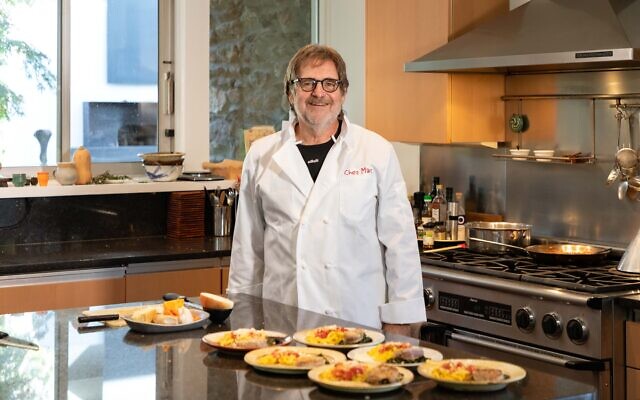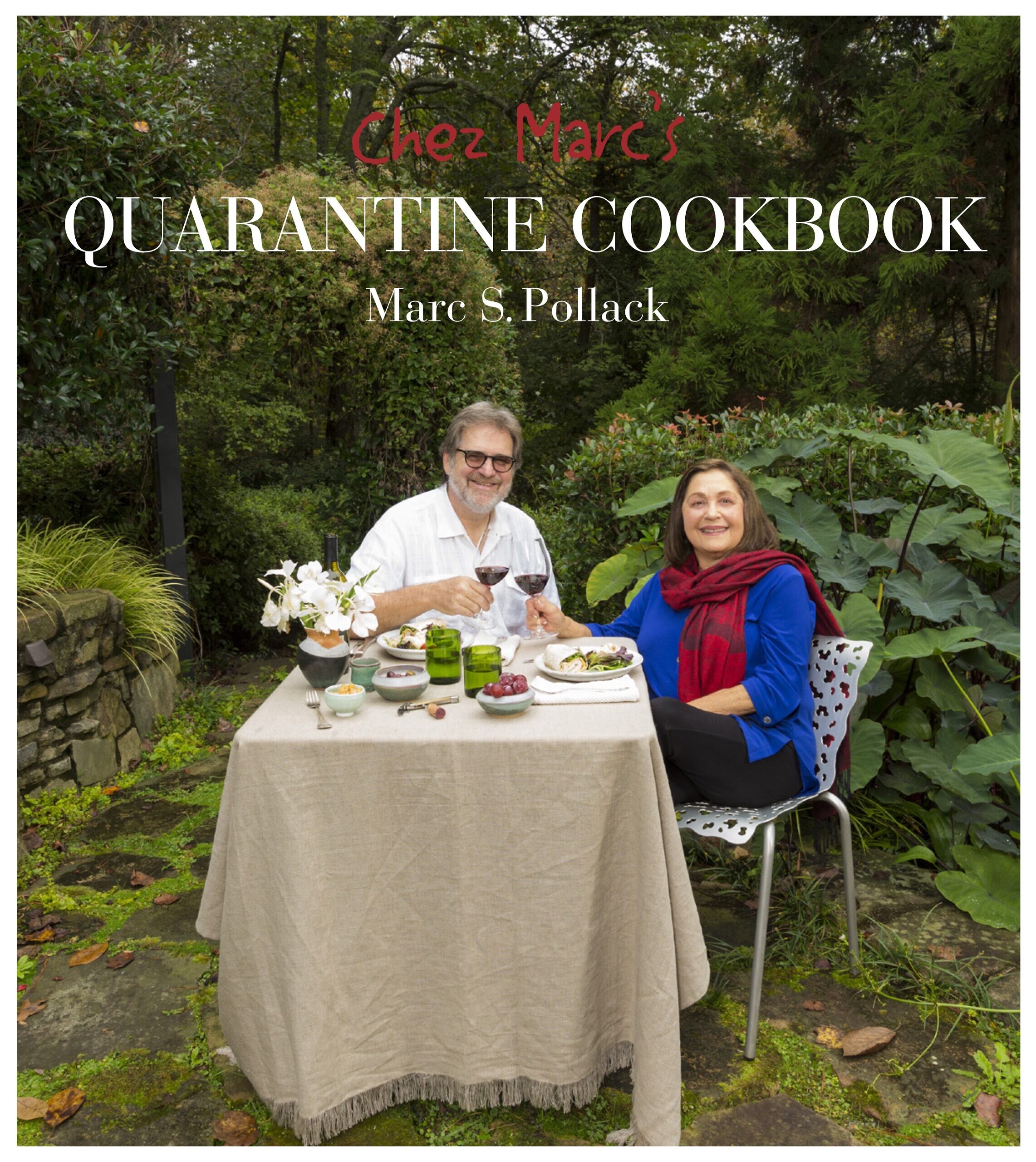The ‘Quarantine Cookbook’
Real estate developer-benefactor Marc Pollack published a cookbook with sales benefiting homelessness.
After 37 years with the Atlanta Journal-Constitution and now with the AJT, , Jaffe’s focus is lifestyle, art, dining, fashion, and community events with emphasis on Jewish movers and shakers.

Marc Pollack, a home cook/foodie, did not set out to write a book. His notion was to jot down his ideas alongside iPhone photos as a lark for 67 days, starting last spring, in a self-discovery journey of non-repeating home-prepared menus.
Later, he sought out experts to create a hardbound book and got a small printing order with the goal of culminating in a charitable “do-good end game.” By late last year, that first run of books had sold out.
Pollack pivoted from being a leading developer in residential real estate for notable projects such as Atlantic Station, Lindbergh City Center and The Battery Atlanta, to focus on homelessness and affordable housing.
The book specifically benefits the Gateway Center, which addresses barriers that prevent those from transitioning out of homelessness. Previously, he co-founded the Atlanta Affordable Housing Fund to address the city’s staggering divide. “Before the pandemic, nearly 3,200 people experienced homelessness in metro Atlanta,” he said.
Pollack grew up in the Philadelphia suburbs with maternal home cooks. He recalls, “Some of my relatives were poor Eastern European Jews from Romania with wonderful simple recipes.” His interest in cooking began in college, when he eschewed junk food. “I always had three pots of something cooking on the stove.” As further evidence of the scope of Pollack’s heart, his first vocation was special education teacher.
“Quarantine, it turns out, wasn’t all that bad.” Although he and wife Robin did not host dinner parties with friends, they cooked with fresh ingredients from her extensive garden. Credit throughout the book is given to Robin, Marc’s favorite “critic” who’s been featured in the Atlanta Jewish Times with her own gardening expertise.

He stated, “I cooked constantly under Robin’s eye.” Marc prefers to buy locally, even “uber locally” in the backyard with Robin tending to oregano, rosemary, leafy lettuces, arugula, varieties of tomatoes, eggplant, collards and turnips. Robin, a former art instructor at the Chastain Arts Center, created all the distinctive pottery photographed in the book to plate the food.
The book is a handy size, 144 pages, broken into bite-sized categories including Equipment; Appetizers; Salads and Soups; Fish; Meat; Eggs; Sandwiches and Starches; Vegetables and Sides; and Drinks. Marc’s notes are etched in a casual friendly font akin to him sitting nearby espousing Hot Tips and Quick Tips. Recipes are not laden with exotic labor-intensive ingredients. Many have under six mouthwatering suggestions: Pasta in Raw Tomato Sauce, Cauliflower and Ginger Soup, Wild Mushroom Risotto, Botham Burgers, Spatchcocked Chicken, and Sautéed Grouper in Peanut Sauce, just to name a few.
Pollack’s tips:
Oils: Use olive oil only as a “finisher” or dressing. EVO does not do well at high temperatures. Cook with peanut, safflower or canola oil. Grapeseed oil is a first choice, always leaving the flavor to speak cleanly for itself.
Wine: Pollack prefers European red wines, sometimes white for salad and seafood. He notes that California and Oregon also have quality domestic wines. Pre-COVID the Pollacks went on an Atlanta Botanical Garden tour to South America to get knee deep in wine tasting. “There are really no rules when it comes to wine.”
One pan dishes: Use cast iron to sauté on stove top or in the oven, keeping the moisture in transferring locations. “It’s the best way to cook a filet!”
Pollack’s easy favorite in the book: Grilled eggplant. “I like the simplicity of it and the final outcome.”
Bottom line: Pollack combines culinary gusto with advocacy. That’s his winning recipe.
To purchase the book, visit here.



comments